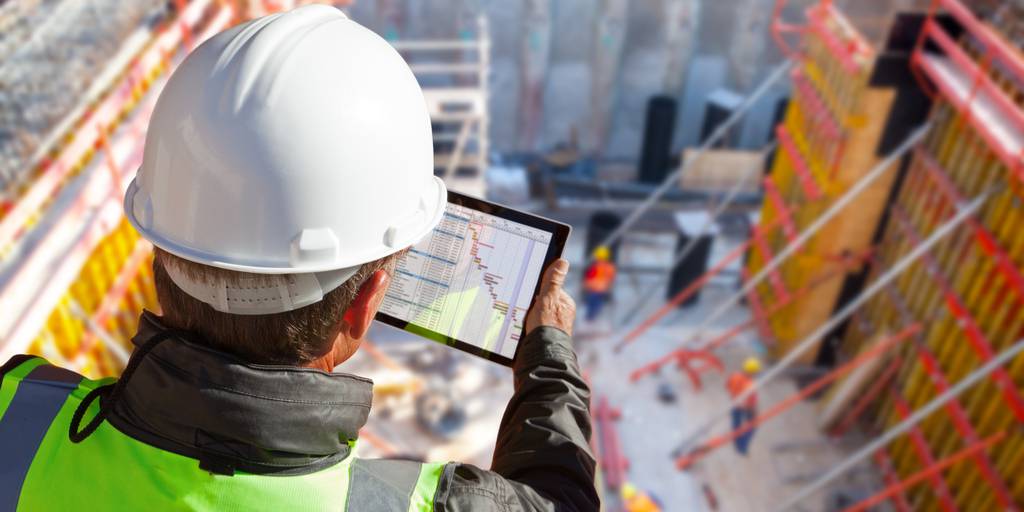“I can pull up by the curb. I can make it on the road. Goin' mobile. I can stop in any street and talk with people that we meet. Goin' mobile. Keep me movin'.” – The Who
Walk onto any construction site today and you’re bound to see mobile technology being used. Whether it’s workers clocking in with mobile time cards, a foreman filing daily reports with his smartphone, or a project manager reviewing plans and specs on a tablet during a site visit, mobile technology is making a big impact on the jobsite.
Mobile technology, as we know it today, is a fairly new concept. Modern smartphones have been around for just over a decade with the launch of Apple’s iPhone in 2007 and the first Android device in 2008. This was quickly followed by third-party apps and tablets. A couple of years after that we got 4G broadband cellular with faster internet speeds.
Prior to this, the best things you could count as mobile tech was a laptop equipped with an AirCard and a cell phone or PDA with limited functionality compared to today’s smartphones and tablets. Mobile technology has certainly come a long way in a short amount of time.
For construction professionals, adopting mobile technology into their workflows makes perfect sense. Between the office, the jobsites, meetings with stakeholders, and attending pre-bid conferences, you’re always on the go. Having the ability to access the tools and information to get the job done from wherever you are is important.
There are mobile solutions to help manage every aspect of a construction project. From preconstruction to scheduling, from project management and field reporting to managing your back office, there’s a solution out there to help streamline your processes and improve productivity.
Better Recordkeeping
Mobile technology allows for real-time data collection and transmission between the jobsite and project managers back at the office. Cloud-based solutions enable employees on the jobsite to submit timecards, daily reports, requests for information (RFIs), work records, change orders, and other verified documentation.
Let’s face it, keeping records on paper is cumbersome and inefficient. Reports can easily get lost or filed incorrectly and it’s a slow way to get critical data and information like daily reports in the hands of decision-makers like project managers who rely on that information to keep a project on schedule and within budget.
Mobile solutions allow information to flow in real-time and documents can be recorded with date and timestamps along with GPS location data and digital signatures to ensure accuracy and authenticity.
Eliminating paperwork with electronic reporting can save hundreds of hours per year in redundant data entry and automatically organizes critical files—no more shuffling through files looking for old reports.
Real-Time Collaboration
Being able to effectively communicate and collaborate is a key component of any successful construction project. When team members and stakeholders have access to the same information in real time, it streamlines the collaboration process and makes conversations more productive.
Mobile technology and cloud-based solutions allow everyone on a project to be able to review and update documents, reports, plans, and specifications in real time, keeping everyone on the same page as work progresses.
When issues arise on the jobsite, a worker can easily snap a few photos of the problem, create a report, and immediately send it off to be reviewed and quickly resolved. No more waiting for around for revised plan sheets to be delivered to the site, they can be pushed straight to your smartphone or tablet.
You can also pull that smartphone out of your pocket and use it as a, get this, an actual phone to make a call if a more in-depth conversation needs to be held regarding the project.
Improved Efficiency, Increased Productivity
Project management has never been easier thanks to the benefits of mobile technology. Workflows and processes can be better managed with the right cloud-based mobile solutions. Being able to schedule labor and equipment, conduct field inspections, manage change orders, document progress, and review plans and specs from a single device can greatly improve efficiency on a jobsite.
The ability to easily access and analyze all the project data collected from anywhere lets you decrease downtime, make better decisions faster, and improve productivity on your projects. With the right mobile solutions, you can get notified of issues or possible delays as quickly as they arise. This allows you to mitigate risks and avoid costly rework in a way that was wasn’t possible just a decade ago.
Mobile Office
Mobile technology allows you to stay connected and in the know wherever you need to be. This can save you countless trips from the jobsite back to the office to file reports, submit RFIs, or pick up revised drawings.
Your smartphone or tablet can turn anywhere into a mobile office—the jobsite, your truck, the coffee shop, etc. Wherever you are, regardless of the time of day, you can quickly manage your projects to keep them moving.
Mobile technology isn’t just limited to apps and software on a smartphone or tablet. Telematics data from heavy equipment, drones, smart hard hats, and virtual and augmented reality are all using mobile technology to improve safety, increase productivity, and improve project management processes on the construction site.
As mobile technology continues to expand to all facets of construction management, being able to adopt, adapt to, and leverage that technology will help you get an edge on your competition and keep you moving.
Want to learn more about how technology is transforming the construction industry? Be sure to check out our article explaining How Technology is Reshaping the Construction Industry.
